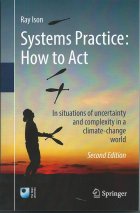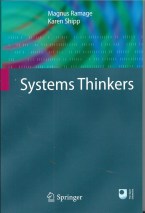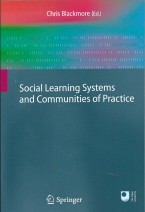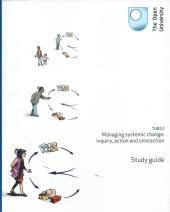Introduction
My academic journey with the Open University (OU) began in October 2010. I was first introduced to the OU while I was a union, and health and safety representative for the Union of Shop, Distributive and Allied Workers (USDAW) which is the trade union representing the workers at Tesco Extra where I work. Besides attending numerous workshops for new reps, I completed a series of home-study courses produced by USDAW on topics such as pensions, collective bargaining, democracy. At the end of the course, I was posted a leaflet introducing me to the Open University if I was interested in further opportunities for self-improvement. I enrolled on the BSc (Hons) Computing and IT because of my fascination with digital technology and information communication that had begun to gain momentum in all spheres of human activity since the era of web 2.0.
In December 2016, I completed my undergraduate studies, and attended my graduation ceremony at the Barbican in march 2017. But for sometime leading up to the end of my undergraduate studies, I had been considering continuing with a master’s degree to specialise in a particular field. My choice was a MSc in Technology Management.

In November 2017, I began my postgraduate journey towards a MSc Technology Management with the Open University program starting with T848- Managing Technological Innovation. I have since followed this, T849- Strategic capabilities for technological innovation. These two modules constitute the compulsory component of the requirements of the postgraduate certificate in Technology Management.
My trajectory into understanding systemic change
TU812-Managing Systemic change: inquiry, action and interaction, is the first of two optional modules needed to earn a postgraduate diploma in technology management. I formally begin the module on November 1st, but the distant-learning materials and student home website have been available since October 5 when my books were delivered by royal mail. By this time, it had been 15 days since Hurricane Maria, a category 5 storm had devastated Dominica–my homeland.
The learning objectives of Managing Systemic change: inquiry, action and interaction are to develop your Knowledge and understanding of the traditions of systems thinking with a view to developing vital cognitive skills for use in practical and/or professional situations such as:
- inspiring innovation and/or creativity
- providing leadership
- positions where you have to work across boundaries (internal or external)
- having to engage others in what you are doing (i.e. building stakeholding) either within or external to your organisation or project
- developing new policies that will affect a wide range of people
- managing change of some form or another
- project or programme development and/or delivery
- participating in or managing multi, inter or transdisciplinary research
- interdepartmental working parties, groups, committees
- policy development or implementation
- working more effectively with your colleagues and communities in developing your practice.
Extracted from the Open University 2017
Blogging my way through TU812
One of the required activities for this module is to use some form of blogging tool to capture your learning on the subject by the use of a blog or journal. The entries you provide are to analyse module concepts, post initial reaction and to challenge your thinking as the module progresses and according to the Open University, ” to [Prepare] a learning contract based on systemic changes you wish to manage”
To this end, I have decided to use my blog here on wordpress, as the principal entry point for my thoughts and reflections, then distribute them by sharing with myOpen University blog, TU812 forum and other social media such as Facebook and Twitter.
Systems Practice: How to act
In situations of uncertainty and complexity in a climate-change world
My preparatory reading of the textbook resources and module website thus far, has given me great insight, and an appreciation of the need, for professionals with specialised skills, not only in innovation and technology in general, but also with knowledge of systems-thinking that can think through complex problems and guide towards an appropriate response.
One of the biggest challenges facing mankind today, is the threat of mankind-induced climate change that is having an adverse affect on the world’s climate , and is being blamed for catastrophic natural events such as the ongoing North Atlantic hurricane season which has seen large-scale devastation of many islands in the Caribbean this year, including Dominica.
Next time
In my next blog, I will be looking more deeply into module concepts. For a start, Ray Ison and Chris Blackmore, two of the authors of the textbooks,used in the course are also responsible for writing the study guide and themselves are deeply associated with The Open university for many years.
In addition, I will also go deeper into what it is that I, first will get out from the course, and 2, what it is I hope to do with my newly-found knowledge.
According to the requirements, this journal is to be updated periodically. So until next time, please read, like and share as you join me in my quest to get to grips with managing systemic change: inquiry, action and interaction.
References
Open.ac.uk. (2017). Distance Learning Courses and Adult Education – The Open University. [online] Available at: http://www.open.ac.uk/ [Accessed 22 Oct. 2017].
Ras Albert reasons Information Technology. (2017). Ras Albert reasons Information Technology. [online] Available at: https://rasalbertwilliams.tech.blog/ [Accessed 22 Oct. 2017].
The Open University. (2017). TU812 – Managing systemic change: inquiry, action and interaction – Open University Course. [online] Available at: http://www.open.ac.uk/postgraduate/modules/tu812[Accessed 22 Oct. 2017].
The Open University. (2017). TU812 – Managing systemic change: inquiry, action and interaction – Open University Course. [online] Available at: http://www.open.ac.uk/postgraduate/modules/tu812[Accessed 22 Oct. 2017].
Usdaw.org.uk. (2017). USDAW – Usdaw . [online] Available at: http://www.usdaw.org.uk/ [Accessed 22 Oct. 2017].



